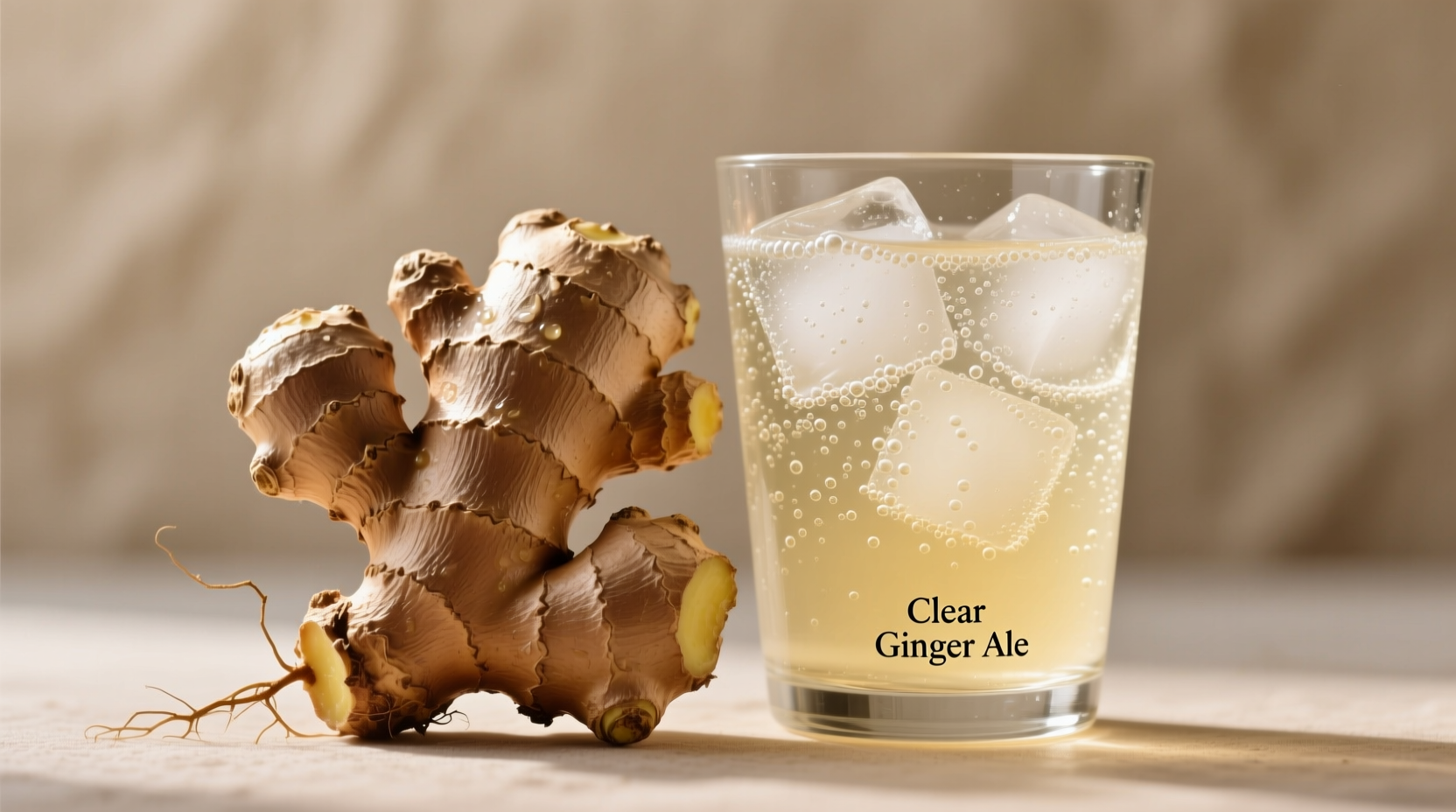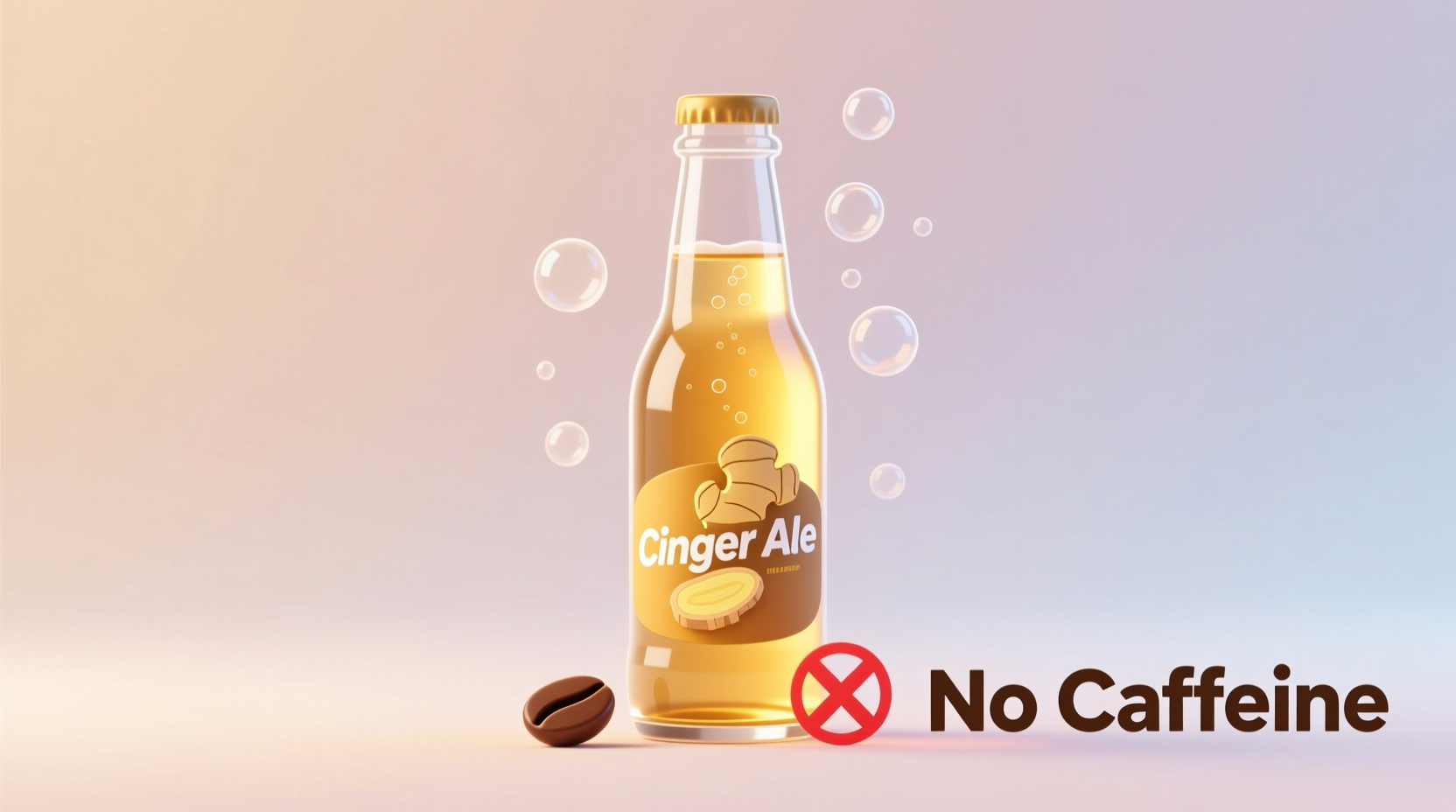If you're monitoring your caffeine intake for health reasons, pregnancy, or personal preference, understanding what's in your beverages matters. Many people mistakenly assume ginger ale contains caffeine because it's grouped with other sodas, but this popular fizzy drink stands apart from caffeinated options. Let's explore why this confusion exists and how to make informed choices about your beverages.
Why People Ask About Caffeine in Ginger Ale
The confusion typically stems from ginger ale's placement alongside colas and other sodas in grocery stores and restaurants. Since many popular carbonated drinks like Coca-Cola (34mg per 12oz) and Pepsi (38mg) contain significant caffeine, consumers reasonably wonder if ginger ale follows the same pattern. This question becomes particularly important for:
- Parents selecting beverages for children
- Individuals with caffeine sensitivity or medical restrictions
- Pregnant women following doctor's advice to limit caffeine
- Night shift workers avoiding stimulants before sleep
- Those managing anxiety disorders exacerbated by caffeine
What's Actually in Ginger Ale?
Ginger ale's core ingredients have remained consistent since its creation in 19th century Ireland. According to the U.S. Food and Drug Administration's standards for carbonated beverages, traditional ginger ale contains:
- Carbonated water
- Ginger root extract or flavoring
- Sweeteners (sugar, high fructose corn syrup, or artificial sweeteners)
- Citric acid (for tartness)
- Natural or artificial flavors
- Preservatives like potassium sorbate
Unlike colas that use kola nut extract (a natural source of caffeine), ginger ale recipes don't incorporate any caffeine-containing botanicals. The distinctive flavor comes from gingerol compounds in ginger root, which provide the characteristic spicy-sweet taste without any stimulant properties.
| Beverage Type | Average Caffeine (per 12oz) | Primary Flavor Source | Caffeine Source |
|---|---|---|---|
| Regular Ginger Ale | 0 mg | Ginger root | None |
| Diet Ginger Ale | 0 mg | Artificial ginger flavor | None |
| Cola | 34-45 mg | Kola nut extract | Kola nut |
| Root Beer | 0 mg | Sassafras/sarsaparilla | None |
| Mountain Dew | 54 mg | Citrus flavors | Synthetic caffeine |
When Ginger Ale Might Contain Caffeine
While traditional ginger ale remains caffeine-free, certain specialty products might include caffeine:
- Energy drink hybrids: Some newer products combine ginger ale with energy drink components. Always check labels for ingredients like guarana or added caffeine.
- Craft ginger beers: Certain artisanal ginger beers undergo fermentation that produces minimal alcohol but doesn't create caffeine. True ginger beer (fermented) still contains no caffeine.
- Medicinal formulations: Some stomach relief products combine ginger with caffeine for migraine treatment, but these are clearly labeled as medications, not beverages.
The U.S. Food and Drug Administration requires caffeine content disclosure on all beverages. If a product contains caffeine, it must appear in the ingredients list as "caffeine" or through specific sources like "guarana extract." Major brands like Canada Dry and Schweppes maintain caffeine-free formulas across their standard product lines, as verified through their official ingredient documentation.
How to Verify Your Ginger Ale's Ingredients
When caffeine content matters to your health decisions, follow these verification steps:
- Read the ingredient label: Look specifically for "caffeine," "guarana," or "kola nut"
- Check nutrition facts: Some products now list caffeine content in the supplement facts panel
- Visit manufacturer websites: Most major brands have detailed ingredient information online
- Contact customer service: Reputable companies will provide immediate clarification
- Use reliable databases: The National Institutes of Health maintains the Dietary Supplement Label Database for verification
For those managing medical conditions affected by caffeine, this verification process provides essential peace of mind. The Academy of Nutrition and Dietetics confirms that standard ginger ale remains one of the safest carbonated beverage options for caffeine-restricted diets.

Practical Guidance for Different Needs
Understanding your specific requirements helps make the best beverage choice:
For Parents and Caregivers
Ginger ale's caffeine-free nature makes it suitable for children's upset stomachs or motion sickness. Pediatric guidelines from the American Academy of Pediatrics consider it safer than sports drinks for rehydration in moderate illness. Always choose regular (not diet) versions for children, as artificial sweeteners aren't recommended for young digestive systems.
For Caffeine-Sensitive Individuals
If you experience anxiety, heart palpitations, or sleep disturbances from caffeine, standard ginger ale provides a safe carbonated alternative. Many people with caffeine sensitivity report that even small amounts in colas trigger symptoms, making ginger ale a reliable substitute for social soda occasions.
For Those Seeking Natural Remedies
Ginger's natural compounds offer digestive benefits without stimulant effects. Research published in the Journal of Ethnopharmacology confirms ginger's effectiveness for nausea relief, making caffeine-free ginger ale a practical remedy for morning sickness, chemotherapy side effects, and motion sickness.
Final Considerations
When selecting ginger ale for caffeine-sensitive situations, remember these key points:
- Traditional ginger ale has never contained caffeine in its standard formulation
- Always verify ingredients on specialty or craft products
- Diet versions remain caffeine-free but contain artificial sweeteners
- Ginger beer (fermented version) also contains no caffeine
- "Caffeine-free" labeling on ginger ale is redundant but increasingly common
By understanding what goes into your beverages, you can make informed choices that support your health goals without sacrificing enjoyable refreshment. When in doubt about any beverage's ingredients, the most reliable approach remains checking the manufacturer's official information rather than relying on assumptions based on beverage category.











 浙公网安备
33010002000092号
浙公网安备
33010002000092号 浙B2-20120091-4
浙B2-20120091-4